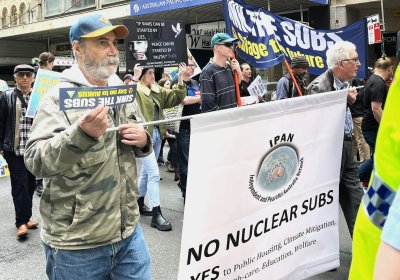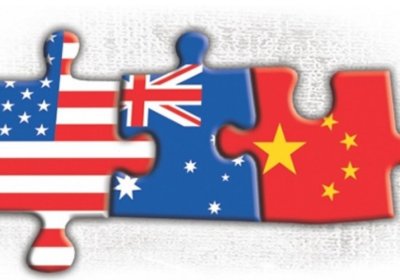The University of Melbourne Palestine Action Group held a speak-out against Israel’s war crimes on the campus. Daniel Weber reports.
Lockheed Martin
Labor ministers happily agreed to allow the United States to deepen and tighten militarisation of Australia at the AUSMIN 2023 talks. Bevan Ramsden reports.
Peace Action Meanjin disrupted a science, technology, engineering and math education and defence conference to call for weapons companies to be banned from primary and secondary schools. Kerry Smith reports.
Backed by Scott Morrison and Peter Dutton, the "defence and strategic policy think tank" ASPI is a key player in drumming up a pre-election China threat, writes Marcus Reubenstein.
Over the past three months, the world has watched the escalating tensions between North Korea and the United States with growing alarm. North Korea has continued to develop its nuclear weapons program since first testing an intercontinental ballistic missile (ICBM) on July 4.
It is unlikely either side is planning to start a nuclear war, but the situation could escalate out of control and lead to a conflict involving nuclear weapons. This would have unthinkable humanitarian and environmental consequences.
Yet the arms companies that make such a conflict possible are benefitting from the increased threat of nuclear war, along with their investors.
 Two peace activists, Greg Rolles and Shane Anderson, locked themselves to Lockheed Martin's main gates on August 11, blocking the entrance to the Dandenong research facility in an attempt to disrupt the making of missiles for military drones.
Two peace activists, Greg Rolles and Shane Anderson, locked themselves to Lockheed Martin's main gates on August 11, blocking the entrance to the Dandenong research facility in an attempt to disrupt the making of missiles for military drones.




